
So you’ve got chops like Feraud, groove like Rocco and the moves like Jagger. You can fluently solo through Giant Steps at 300bpm, you can play The Black Page behind your head and can read your way through the toughest contemporary classical rhythms. You are on a fast track to the bass hall of fame and you know it. But then you take a dep gig with a seemingly (in your eyes) poor to average band working in a small, depressing holiday park in some wet, grey corner of England. You set up your state-of-the-art, boutique rig and nonchalantly stride onto the band stand without so much as a talk through, safe in the knowledge that your superb reading chops and world class technique will make short work of any problem you my encounter.
“Busker. In A”
The first few songs go fine. Simple reading of some ballroom jazz standards, a couple of 60s pop songs and a line dance. But then the bandleader takes a request from a group of ladies on the dance floor. “Dancing Queen…Busker. In A.” You look down at the pad then back at the bandleader. Then back at the pad but he’s already counting in the tune. You’ve heard the song hundreds of times but never played it and certainly never memorised the changes (After all, you’re too hip and advanced to be wasting your time on ABBA tunes). You try to follow the band as well as you can. You know it’s in A which gives you a start but some notes just don’t seem to work and by the end of the song you are drenched in sweat and feeling like an idiot. The rest of the songs work out fine but there’s no getting around the fact that a basic area of your ability was painfully exposed.
Repertoire is a part of bass playing that is often neglected. It generally seems to be more a consequence of experience than any dedicated area of practice. Most bass players start out by playing along to favoured CDs etc. but as a professional sideman you are likely to find yourself in a wide range of gigging styles that may be very different from your familiar taste. Then, once you embark on more technical sides of playing, it’s commonplace that scales, arpeggios and licks can become the heart of your practice schedule and repertoire is not considered. Even if repertoire was incorporated into practice, what would you practice? The guidance in this area is sparse in general teaching practice and its importance only enters your awareness after several years of working in a variety of gigging environments.
When I was younger I tended to be impressed by other players based on stereotypical music skills or aspects: chops, sight reading, creativity, originality, sound etc. But then after finishing my academic music studies I began accepting gigs as a professional sideman and soon realised that a lot of the skills I’d acquired, as impressive and advanced as they may have seemed to some, were unnecessary in most gigs and the thing that negatively set me apart from the other, equally well trained musicians around me was experience and repertoire. High profile bass players such as Jeff Berlin preach the importance of learning music the correct way in order to embark on a career as a professional musician – and he’s right to do so but I think many of the pop/jazz music institutions are selling people short by avoiding certain areas of music that are very important in preparing you for the profession.
So you wanna be a pro?
Really, the main aspects of music you need to master in order to start work as a bass sideman are: Time, sight reading, sound, style and repertoire. Time, or the ability to play a consistent time feel is the most important pre-requisite and something that should be paramount in your mind while playing at all times. Sight reading is an obvious and relatively easily developed skill that covers most decent paid gigs. Sound is an overlooked side of playing in that having the correct sound for the gig or session can be the deciding factor in whether you lose out to other players in an audition or on recommendation. Along with time, it makes up your musical personality in the ensemble and in some ways can be THE most important factor. When I mention ‘style’ I simply mean knowledge of the musical devices needed to convincingly play in any style of music. At a medium to advanced level this can indicate and involve an understanding of standard music theory and harmony. One of the most obvious examples of style skills would be the ability to play walking bass lines in a jazz setting, a skill that requires knowledge of scales, arpeggios, functional harmony and improvisation. Finally, a large repertoire of songs is as important as sight reading in many gigs and can actually make up for deficiencies in your reading ability. I’ve seen guys with poor to average reading get through difficult gigs simply due to the fact that they knew all the songs by heart. With a huge repertoire you instantly inspire confidence in a bandleader and exude an aura of experience. You can also take short notice gigs with any bands or shows that disallow sheet music on stage.
I’ve found that pianists are often the kings of repertoire. I remember visiting Disney World in Florida as a teenager and being completely floored by a pianist who spent all afternoon taking requests from passers-by and busking every suggestion with no fake books, cheat sheets or written music of any kind. At the time I just put it down to a freakish memory. You’ll often see cocktail pianists in bars, hotels and cruise ships busking standards for hour after hour. I’ve played with several brilliant pianists in residency gigs in which we would regularly take requests and the pianist would confidently launch into whatever song it was, while I struggled to play along, relying on my ear to follow the changes and a vague mental recollection of a passing radio/disco/TV performance for the roadmap of the tune. After being so impressed by these guys and their displays of never ending repertoire it became an ambition of mine to develop an encyclopaedic mental library of tunes. After all, what’s more impressive to your average Joe Blow: a continuous stream of semiquaver arpeggios at 200 bpm or a note-perfect performance of a favourite song from memory.
Sort your aural skills out
So how do you develop your repertoire? Well, gigging band experience is obviously the best way. The more varied an array of bands you play with, the more songs you will learn. But it is possible to mimic some of the elements that aid in memorising a large number of songs. First of all you need to be aware of the fact that very few musicians consciously and purposely sit and memorise thousands of individual songs. Large repertoire can often be an illusion formed from a combination of good aural skills and a diverse interest and taste in music. For instance, if you learn a standard blues chord progression then you’ve pretty much taken care of all the hundreds/thousands of songs that rely on that progression. Also, as you learn more and more basic pop songs you begin to hear and recognise the basic chord movements within a key. The 3 chord trick of chords I, IV and V occur more frequently than others and it pays to be able to hear them within a song. Chord I is easy to hear, simply listen out for that feeling of resolution and ‘home’. Then listen out for the chord V-I movement. You can generally hear chords based on the cycle of 4ths moving steadily towards the tonic. There a number of popular chord sequences that you hear time and time again: I-VI-II-V is a standard turnaround used in loads of progressions; II-V-I is the basis for most jazz standards; II-V-III-VI-II-V-I is a common tag ending or way of reiterating a melody up a tone and back; I-I7-IV is used in lots of songs and it pays to hear the tonic chord being altered to a secondary dominant in order to give extra pull towards chord IV. The skill of hearing chords in a key gives you the ability to follow chords that you might hear in your head (or a band) on the fly and the more songs you learn, the more you realise how few chord sequences are used in popular standards and you can start to categorise them in your memory.
Open your ears
However, all the aural skills in the world will be useless without an awareness and knowledge of the songs themselves. First of all it pays to be open minded and listen to as much music in as many styles as possible. Whether you like the music or not is irrelevant so find song collection albums in as many styles as possible. The best way to learn the standards of each style is to play in bands that cover those styles. For instance, the best way to gain experience of songs in a disco style is to join a disco covers band. As you gain experience playing in a variety of bands, so your repertoire of those styles increases. There are only a certain number of songs popular to the masses and once you learn the top 30-40 songs in a style you’ll be amazed at how many times they are repeated in the bands you play in. Requests tend to be the most popular songs because people don’t expect you to know the more obscure tunes (unless they’re idiots trying to catch you out simply for their own pathetic, ego driven satisfaction). So when you stand and watch in amazement as the cocktail pianist blazes his way through requests such as Fly Me To The Moon, Route 66, Blue Moon and Have You Met Miss Jones, just be aware that he/she may only know 30 songs by heart. But they are the 30 songs that always get requested.
A Virtual Covers Band
So, working in a variety of covers bands is the best way to learn but because it can be difficult to find bands in every style in your area you have to find a workaround for practicing alone. The easiest way to do this is to simply pretend you’re already in these bands. In fact, to hell with it, you can be the bandleader. All you have to do is design your own setlists and then learn the songs. (You could even make up some cheesy or stupid band names if it floats your boat). To get started, just stick to two 45 minute sets for each band, find the songs on CD or mp3 and the sheet music. Or better still, transcribe the songs yourself. Of course, you have to do a little research and work out what the standards of each style are but that can help with the afore mentioned stylistic awareness.
To save a bit of time I’ve compiled a few songlists for several band styles. If you want to really go to town on this, learn the songs by ear and then try playing them away from the recording (just to check you aren’t using the recording for chord or form prompts), then try singing the lead and/or backing vocals along with yourself (at some point you WILL be asked to sing backing vocals and this is another aspect of your musicianship that can make the difference between you getting the gig over another player).
Once you are confident with a song, try transposing it to different keys. Try moving the song up and down a tone, then try up a fourth and a fifth. This will simulate a situation whereby the singer may have the wrong range for the song or a male singer is singing a female song or vice versa. Don’t waste time totally re-learning the songs in the other keys. You should learn the song well enough and understand the melodic/harmonic structure enough so you can transpose to any key on the fly.
I will be writing a post on transposing songs but for now just remember to know the chords of a song in relation to the tonic (I,ii,iii etc.) and then relate them to the tonic of the new key (Chord ii in C = Dminor. Chord ii in G Major = A minor). Trust me, if you start taking professional bass work, you will be asked to transpose a song at some point on your instrument and may even be asked to transpose a provided written part on the fly.
Here are a few common types/styles of band:
- Disco
- Jazz cocktail/lounge band
- Function/Party band
- Country band,
- Glam
- Ballroom
- Lounge/Easy Listening
- Rock & Roll
Some sample songlists
The following songlists are only examples of a few of these bands and you may prefer to modify them with songs you feel are more appropriate or ones you already know. Compilation albums are a great resource in developing these lists. Aim to learn a songlist in a week since that would simulate a short notice call for a gig. Don’t worry if you don’t nail them in that time. After all, there is no gig. Just keep playing them over and over and try to see patterns that you can associate with each song.
As an extra assignment it’s also worth learning popular jingles, anthems and songs such as Happy Birthday, National anthems, Amazing Grace etc.
Disco Songlist:
- A Night To Remember
- Ain’t No Stopping Us Now
- Blame It On The Boogie
- Boogie Nights
- Boogie Oogie Oogie
- Car Wash
- Celebration
- Dancing Queen
- Dec 63
- Disco Inferno
- Don’t Leave Me This Way
- Funkytown
- Hot Stuff
- I’m Every Woman
- I Love The Nightlife
- I Will Survive
- It’s Raining Men
- Ladies Night
- Lady Marmalade
- Le Freak
- Lost In Music
- Love Train
- More Than A Woman
- Never Can Say Goodbye
- Night Fever
- Play That Funky Music
- Somebody Else’s Guy
- That’s The Way (I Like It)
- The First, The Last, My Everything
- We Are Family
- YMCA
- You Should Be Dancing
- You To Me Are Everything
Jazz Standards (for more information on practicing Jazz standards see the article)
Swing
- All Of Me
- All The Things You Are
- Autumn Leaves
- Days Of Wine And Roses
- Don’t Get Around Much Anymore
- Fly Me To The Moon
- Like Someone In Love
- Long Ago And Far Away
- How high The Moon
- I Got Rhythm
- Just Friends
- Moondance
- Night And Day
- Satin Doll
- Stella By Starlight
- Take The A Train
- Take Five
- There Will Never Be Another You
Jazz Waltz
- My Favourite Things
- Someday My Prince Will Come
Ballads
- Bewitched
- My Funny Valentine
- Blue Moon
Bossa Nova
- Blue Bossa
- Call Me
- Corcovado
- Desafinado
- Girl From Ipanema
- Meditation
- Nature Boy
- The Shadow Of Your Smile
- Wave
Samba
- St Thomas
- One Note Samba
Other
- Canteloupe Island
- Feel Like Making Love
- Green Dolphin Street
- Watermelon Man
Rock and Roll
- At The Hop
- Bebop a Lula
- Chantilly Lace
- C’mon Everybody
- Good Golly Miss Molly
- Great Balls Of Fire
- Jailhouse Rock
- Johnny B Goode
- The Twist
- Let’s Twist Again
- Long Tall Sally
- Lucille
- Rock And Roll Is Here To Stay
- Rock And Roll Music
- Rock Around The Clock
- Roll Over Beethoven
- Runaround Sue
- See Ya Later Alligator
- Shake Rattle And Roll
- Stupid Cupid
- Tutti Frutti
- Whole Lotta Shakin’ Goin’ on
- Wipeout


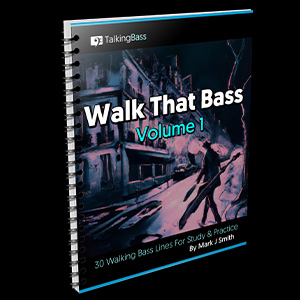

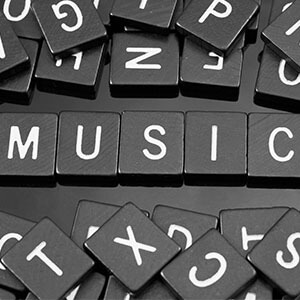


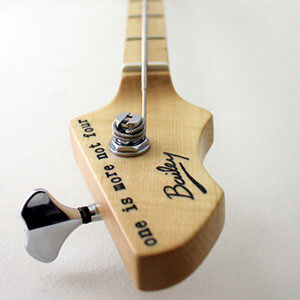

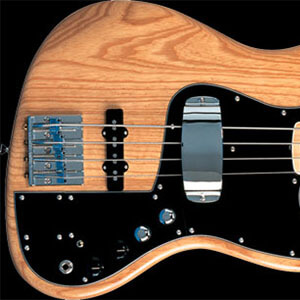
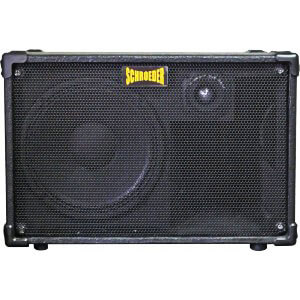


cocktail dresses – long sleeve dresses, charger wireless.
Great article – this covers a lot of the things I teach under “musicianship” alongside the golden rule to being a working bass player – don’t be an a-hole. If you are nice, approachable, open to new tunes (and happy to play old ones for the 1000th time) and have gear & transport you are pretty much in the game. Dont drink too much, don’t take drugs, be as professional as you can (and know when you can be more relaxed). You have mentioned all the other tips in one concise article – I am in Melbourne, Australia so our Sample Songlist is slightly different for cultural reasons but there is a lot of overlap! Great work.
Sounds like sound advice, thanks!
Spotify playlist containing the disco songlist: https://open.spotify.com/playlist/1TKFQcFeVTrb0cBicRBAob?si=kmhPmVhiQfKoTNExQ9h88Q